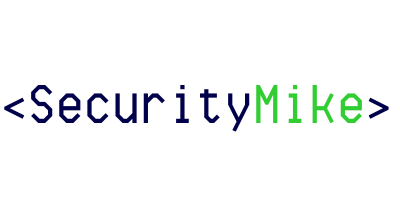In today’s digital age, where personal and sensitive information is constantly being shared and stored online, it is crucial to prioritize cyber hygiene. Cyber hygiene refers to the practices and measures taken to protect oneself and one’s data from cyber threats. This includes everything from creating strong passwords to regularly updating software and being cautious of phishing scams.
The importance of cyber hygiene cannot be overstated. With the increasing number of cyber attacks and data breaches, individuals and businesses are at a higher risk than ever before. According to a report by Risk Based Security, there were over 5,000 data breaches reported in 2019 alone, exposing billions of records. These breaches can have severe consequences, including identity theft, financial loss, and damage to one’s reputation.
Key Takeaways
- Cyber hygiene is important for protecting your data from cyber threats.
- Common cyber threats include phishing scams, malware, and insecure Wi-Fi networks.
- Creating strong and unique passwords is crucial for password management.
- Staying up-to-date with software updates is important for security.
- Avoiding phishing scams and malware is key to email safety.
Understanding the Risks: Common Cyber Threats to Your Data
There are various types of cyber threats that individuals and businesses need to be aware of. Malware, which includes viruses, worms, and ransomware, is one of the most common types of cyber threats. Malware can infect a computer or network and cause significant damage, such as stealing sensitive information or encrypting files until a ransom is paid.
Phishing is another prevalent cyber threat that targets individuals through deceptive emails or websites. These scams aim to trick users into revealing personal information, such as passwords or credit card details. Phishing attacks have become increasingly sophisticated, making it essential for individuals to be vigilant and cautious when interacting with emails or websites.
Recent cyber attacks have highlighted the impact that these threats can have on individuals and businesses. For example, the 2020 SolarWinds attack compromised numerous government agencies and private companies, exposing sensitive data and potentially allowing hackers access to critical systems. The attack serves as a reminder of the importance of robust cybersecurity measures.
Password Management: Creating Strong and Unique Passwords
One of the fundamental aspects of cyber hygiene is password management. Strong and unique passwords are essential for protecting personal and sensitive data. A strong password should be at least eight characters long and include a combination of uppercase and lowercase letters, numbers, and special characters.
Creating unique passwords for each online account is crucial because if one password is compromised, it won’t give hackers access to all of your accounts. It can be challenging to remember multiple complex passwords, which is where password manager tools come in handy. Password managers securely store all your passwords in an encrypted vault, allowing you to generate and autofill strong passwords without the need to remember them.
Software Updates: Why They Matter and How to Stay Up-to-Date
Regularly updating software is another critical aspect of cyber hygiene. Software updates often include patches and fixes for security vulnerabilities that hackers can exploit. By keeping your software up-to-date, you are closing potential entry points for cybercriminals.
To check for software updates, you can go to the settings or preferences section of the software or operating system. Most software will have an option to automatically check for updates and install them. It is essential to enable this feature to ensure that you are always running the latest version.
Using outdated software puts you at a higher risk of falling victim to cyber attacks. Hackers actively search for vulnerabilities in popular software and exploit them to gain unauthorized access or steal sensitive information. By neglecting software updates, you are leaving yourself vulnerable to these attacks.
Email Safety: Tips for Avoiding Phishing Scams and Malware
Emails are a common vector for cyber attacks, with phishing scams being one of the most prevalent threats. Phishing emails are designed to trick recipients into revealing personal information or clicking on malicious links. To avoid falling victim to phishing scams, it is crucial to be cautious when interacting with emails.
One way to identify phishing emails is by checking the sender’s email address. Hackers often use email addresses that mimic legitimate organizations, but upon closer inspection, you may notice slight differences or misspellings. Additionally, be wary of emails that create a sense of urgency or ask for personal information.
To protect yourself from malware, avoid clicking on suspicious links or downloading attachments from unknown sources. It is also essential to have antivirus software installed on your computer or device to detect and remove any potential threats.
Email encryption is another important aspect of email safety. Encrypting emails ensures that the content is only accessible to the intended recipient and cannot be intercepted or read by unauthorized individuals. Many email providers offer encryption options, and it is advisable to enable this feature for added security.
Social Media Security: Protecting Your Personal Information Online

Social media platforms have become a significant part of our lives, but they also pose risks when it comes to cybersecurity. Sharing personal information on social media can make you vulnerable to identity theft, stalking, and other malicious activities.
To protect your personal information on social media, it is crucial to be mindful of what you share and who can see it. Avoid posting sensitive information such as your full address, phone number, or financial details. Be cautious about accepting friend requests from strangers and regularly review your privacy settings to ensure that only trusted individuals can access your profile and posts.
Enabling two-factor authentication (2FA) adds an extra layer of security to your social media accounts. With 2FA, you will need to provide a second form of verification, such as a unique code sent to your phone, in addition to your password when logging in.
Wi-Fi Protection: Securing Your Wireless Network and Devices
Using unsecured Wi-Fi networks can expose your devices and data to potential threats. Hackers can intercept data transmitted over unsecured networks, allowing them to access sensitive information such as passwords or credit card details.
To secure your Wi-Fi network, ensure that you have a strong and unique password set for your router. Avoid using default passwords, as they are often easy to guess. Additionally, consider enabling network encryption, such as Wi-Fi Protected Access (WPA) or WPA2, to encrypt the data transmitted over your network.
When connecting to public Wi-Fi networks, exercise caution and avoid accessing sensitive information or conducting financial transactions. If you frequently use public Wi-Fi, consider using a virtual private network (VPN) to encrypt your internet connection and protect your data from potential eavesdroppers.
Backing Up Your Data: Best Practices for Data Recovery
Data backup is crucial in case of cyber attacks or hardware failure. Regularly backing up your data ensures that you can recover it in the event of a loss or breach. There are various methods of data backup, including cloud storage and external hard drives.
Cloud storage allows you to store your data on remote servers, accessible from any device with an internet connection. Services like Google Drive, Dropbox, and Microsoft OneDrive offer free or paid options for cloud storage. It is advisable to encrypt your data before uploading it to the cloud for added security.
External hard drives provide a physical backup solution for your data. By regularly connecting an external hard drive to your computer and copying important files onto it, you can ensure that you have a separate copy of your data in case of emergencies.
Best practices for data backup include creating a schedule for regular backups, testing the restoration process to ensure that your backups are working correctly, and storing backups in a secure location away from your primary devices.
Mobile Device Security: Keeping Your Smartphone and Tablet Safe
Mobile devices have become an integral part of our lives, but they also pose security risks if not properly protected. Unsecured mobile devices can be vulnerable to malware, data theft, and unauthorized access.
To secure your smartphone or tablet, start by setting a strong passcode or using biometric authentication, such as fingerprint or facial recognition. Avoid using easily guessable passcodes, such as 1234 or your birthdate. It is also advisable to enable the option to remotely wipe your device in case it is lost or stolen.
Regularly updating your mobile device’s operating system and apps is crucial for security. Just like with computers, software updates often include patches for security vulnerabilities. Enable automatic updates on your device to ensure that you are always running the latest version.
Mobile device management (MDM) solutions are available for businesses to secure and manage company-owned devices. MDM allows organizations to enforce security policies, remotely wipe devices, and control access to company data. For individuals, it is essential to be cautious when downloading apps and only install them from trusted sources, such as official app stores.
Making Cyber Hygiene a Daily Habit for Data Protection
In conclusion, cyber hygiene is of utmost importance in today’s digital world. By implementing the practices and measures discussed in this article, individuals and businesses can significantly reduce their risk of falling victim to cyber attacks and data breaches.
Making cyber hygiene a daily habit requires diligence and awareness. It is essential to stay informed about the latest cyber threats and continuously educate oneself on best practices for cybersecurity. Regularly reviewing and updating security measures, such as passwords and software, should become part of one’s routine.
Taking action to protect personal and sensitive data is not only crucial for individual safety but also for the overall security of the digital ecosystem. By prioritizing cyber hygiene, we can create a safer online environment for everyone.
If you’re interested in improving your cybersecurity skills, you might find this article on “Improving Your Cybersecurity Interview Skills” helpful. It provides valuable insights and tips for those looking to excel in the field of cybersecurity. Developing strong interview skills is crucial for landing a job in this competitive industry. Check out the article here to learn more.
FAQs
What is Cyber Hygiene?
Cyber hygiene refers to the practices and habits that individuals and organizations adopt to maintain the security and privacy of their digital devices and data.
Why is Cyber Hygiene important?
Cyber hygiene is important because it helps prevent cyber attacks, data breaches, and identity theft. By adopting good cyber hygiene practices, individuals and organizations can reduce the risk of cyber threats and protect their sensitive information.
What are some examples of good Cyber Hygiene practices?
Examples of good cyber hygiene practices include using strong and unique passwords, keeping software and operating systems up-to-date, avoiding suspicious emails and links, using antivirus software, and backing up important data regularly.
What are some common cyber threats?
Common cyber threats include phishing attacks, malware, ransomware, social engineering, and identity theft. These threats can cause significant damage to individuals and organizations, including financial loss, reputational damage, and legal consequences.
How can I protect myself from cyber threats?
You can protect yourself from cyber threats by adopting good cyber hygiene practices, such as using strong and unique passwords, keeping software and operating systems up-to-date, avoiding suspicious emails and links, using antivirus software, and backing up important data regularly. It is also important to stay informed about the latest cyber threats and to be cautious when sharing personal information online.

